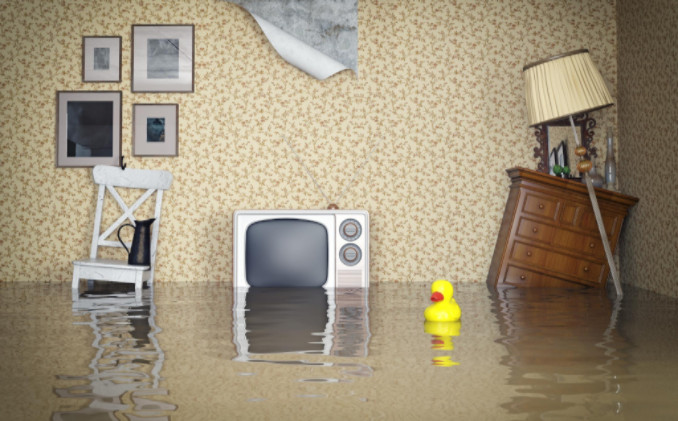In Texas, we see our fair share of floods, and your air conditioning units aren’t immune to the damage. Below, we’ve put together a complete guide for dealing with air conditioning flood damage and how to prevent any further damage from taking place.
Common Flood Damages
One of the most common and vulnerable areas damaged by flooding is the air conditioner’s electrical system. Flooding can easily cause your system’s electricals to short circuit, and they may need replacing. Additionally, submerged electrical parts can become corroded.
Flooding damages the electrical portions of your air conditioning system. Prolonged exposure to water can cause the various inner workings of your system to deteriorate as well. It’s important to have your system professionally checked after every brush with a flood. Leaving any standing water inside, even if the unit appears to work fine, could cause later damage.
Responding to Damage
Turn Off the Electricity
The absolute first thing you should do if you find that your air conditioning unit has suffered flood damage is turn off the electricity to your unit. Failing to do so could easily cause further damage to your unit and yourself. You can cut the electricity to the unit by switching the breaker in your fuse box.
After you’ve cut the electricity, allow the unit to dry out as much as possible. Once this is done, you’ll have to respond to both your indoor and outdoor units differently.
Inspect Your Outdoor Unit
Your outdoor unit should easily withstand typical weather, but it isn’t designed to be submerged in floodwater. After a flood, be sure to check:
- All wires or other electrical parts. Make sure that corrosion hasn’t occurred.
- The condenser fan motor’s seal. If the seal is broken, the motor may have water damage.
- The unit’s coils. See if they need cleaning.
If you notice any one of these conditions, be sure to have your unit professionally repaired. Additionally, it’s important to remove any standing water or debris you see in and around your unit to prevent further damage.
Indoor Unit
While your indoor unit is water resistant, it is still much more prone to water damage than your outdoor unit. Even fairly small amounts of water have the potential to damage numerous parts of the unit. Before you begin surveying the damage, remember to turn the air conditioning off on the thermostat to make sure that no electricity is flowing while you inspect your unit.
Check Your Insurance
Check to make sure that your insurance policy covers flood damage to your air conditioning unit. If so, you should begin the claims process as soon as possible. If your policy does not cover flood damage, you may still be covered if your unit was damaged by wind or debris.
Discontinue Use
Even if your air conditioning unit is working after a flood, it’s important to have a professional take a look. Some flood damage may take days or weeks to show, so turn your unit off until it can be properly inspected.
Avoiding Flood Damage
While flood water is difficult to run from, here are a few steps you can take to prevent flood damage to your air conditioner in the future.
- Remove electrical components. If you know that a serious storm is on its way, you can remove any electrical components of your air conditioning unit to prevent damage.
- Turn off the power. Turning off the power in advance can lessen damage overall.
- Use sandbags. Stacking sandbags around your unit can potentially help stop flood water levels from reaching your system.
- Build a retaining wall. If you’re looking for a more permanent solution to floods, you could have a contractor build a permanent retaining wall around your air conditioning unit.
- Clear out standing water. After a flood or a heavy rain, check to make sure that your unit doesn’t have any standing water inside or around it. If so, clear it out as best you can to avoid further damage. Do not cover your unit with a tarp; this can deter the drying process.
Overall, the best protection from floods is a good home owner’s policy that covers flood damage.
If you live in Houston, Spring, Katy or the surrounding areas and you’ve suffered flood damage to your AC unit, the HVAC experts at Richmond’s Air are here to help. We offer seasonal maintenance and repairs that may pop up. Call us today to schedule an appointment.
 Read reviews
Read reviews









